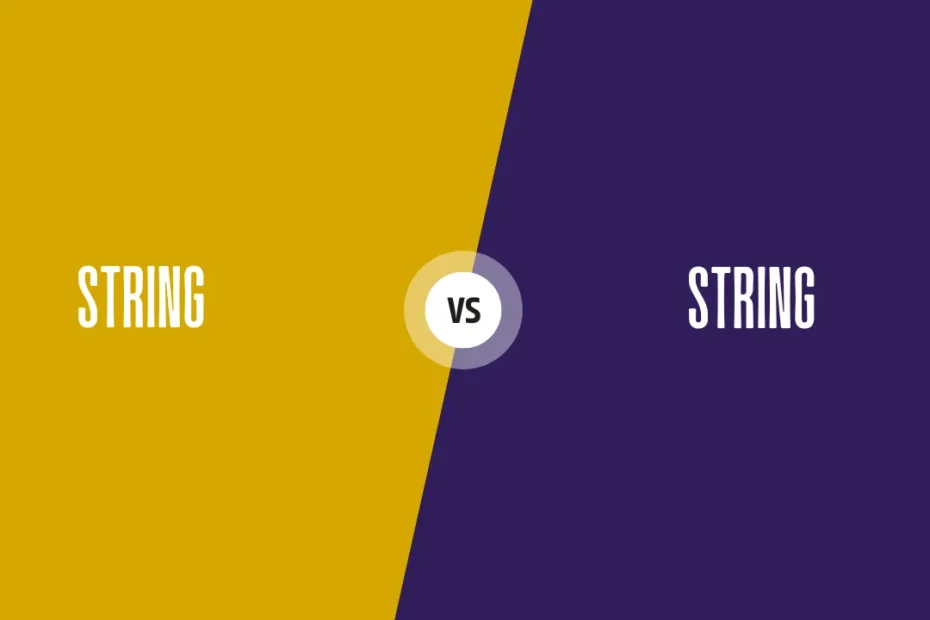In C# string vs String are used interchangeably and refer to the same data type. Both represent the string data type, which is a sequence of characters that is used to store and manipulate textual information. There is no practical difference betweenstring and String.
Difference Between string and String in C#
C# allows the use of either string (with a lowercase “s”) or String (with an uppercase “S”) to define variables, create objects, or declare method return types that represent strings. The C# language specification treats string as an alias for the System.String class, which is part of the .NET Base Class Library (BCL).
Here’s an example showing the usage of both string and String:
using System;
class Program
{
static void Main()
{
// Using 'string' to declare a variable
string name1 = "John Doe";
// Using 'String' to declare a variable (both are equivalent)
String name2 = "Jane Smith";
// Concatenating strings
string fullName = name1 + " and " + name2;
Console.WriteLine(fullName);
// Using string methods
Console.WriteLine(name1.ToUpper());
Console.WriteLine(name2.Length);
}
}
Conclusion
Both string vs String are just two different ways to refer to the same string data type in C#. Developers usually prefer using string (with a lowercase “s”) since it follows the C# naming conventions, which suggest using lowercase for primitive data types. However, using String (with an uppercase “S”) is also valid and won’t cause any functional difference in your code. It’s primarily a matter of personal preference and code style.

Pingback: Difference Between String and StringBuilder - differenceguru.com
Pingback: Difference Between Parse and TryParse in C#
Pingback: Difference Between Typecast and Convert class in c#